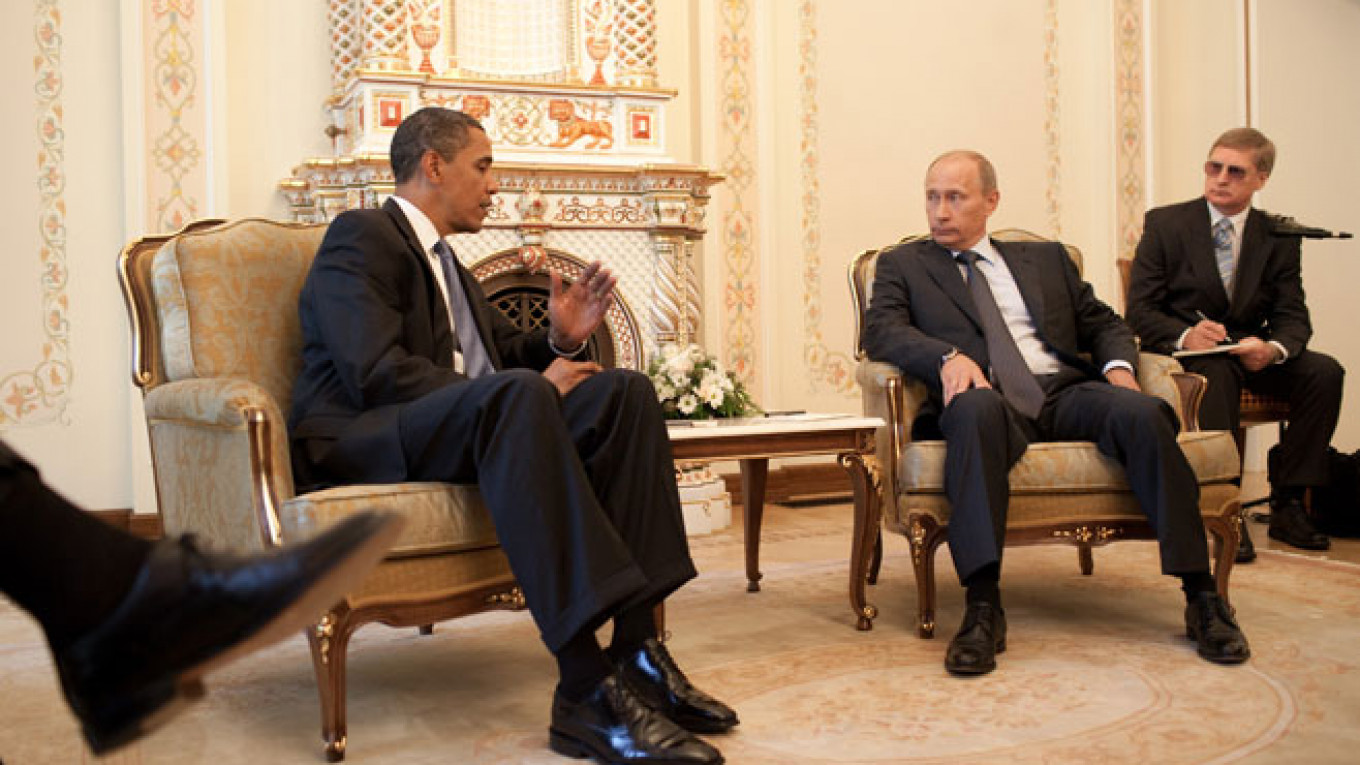As pressure on U.S. President Barack Obama to "do something to punish Russia" over Ukraine mounts, the U.S. has turned to a couple of measures in their foreign policy toolkit, such as threatening President Vladimir Putin with sanctions and expulsion from the Group of Eight. U.S. Senator John McCain even repeated the line he used during the 2008 Russia-Georgia war, saying, "We are all Ukrainians now."
How will Putin react to these threats?
Most likely, Putin will simply ignore the West. First of all, preventing Ukraine from turning decisively West is an existential issue for Putin and the Russian establishment. U.S. policymakers and commentators have missed this fact from the very beginning of the Ukrainian crisis last November. While the U.S. national interests in Ukraine are tangential, Russia's certainly are not. Although the ruble and the Russian stock markets are down, Putin, it would seem, is prepared to incur substantial economic and political pain if necessary before he caves to the Western position on Ukraine.
The West needs to realize that Ukraine is of existential importance to Putin and Russia.
Second, it looks increasingly likely that Washington's European allies, especially Germany, are not prepared to go along with the U.S. position on sanctioning Russia. U.S. trade and investment in Russia is minimal anyway, so why would we expect Putin to give U.S. threats a second thought going forward?
Third, the threat of punishments will only make a dangerous situation even worse by needlessly antagonizing Russia with no upside. For the West to threaten the Kremlin will only back Putin into a corner domestically. Putin's political strength both within the Russian establishment and among common Russians is heavily predicated on his ability to demonstrate that Russia is a great power. Caving in to U.S. threats would be tantamount to political suicide.
Imagine if the tables were turned, and Russia, along with its allies, had threatened the U.S. with sanctions after the U.S. invasion of Iraq in 2003. Former President George W. Bush would have simply ignored the threats, of course.
Although Russia is clearly not the U.S. by any stretch, nor does it have any of the same "privileges" of being the only global superpower, Putin does not necessarily see it this way. On the contrary, it would seem he views himself as a present-day Bush who can invade neighboring countries at will without the sanction of the United Nations Security Council — and get away with it.
What's more, Putin understands that a military confrontation between Russia and the U.S. is out of the question, not only because of the apocalyptic global dangers that this confrontation might entail — Russia, unlike Iraq, Afghanistan or Libya, is a nuclear power — but the U.S. public has little appetite for another military conflict, particularly in a country that most Americans view as tangential to U.S. strategic interests. According to a recent Pew poll, U.S. support for overseas military action has slipped to an historic low — even lower than after the U.S. left Vietnam during the mid-1970s.
Nonetheless, is there anything the U.S. and the West can do to influence Putin's behavior going forward? The answer is yes, but only if U.S. politicians sharply change their rhetoric, policies and mindset.
U.S. diplomats need to understand the existential importance of Ukraine to Putin. A peaceful deal on Ukraine is entirely possible, and it should include the following points:
1. Some formula for joint sovereignty over Crimea. As part of this, clear and unequivocal Russian sovereignty over Sevastopol will need to be spelled out.
2. The West will need to come up with a formula that makes Ukraine's system of governance much more decentralized. Currently, regional governors are appointed by the government in Kiev. Going forward, the regions will require much greater autonomy, and at a minimum governors should be elected rather than appointed.
3. The U.S. should support the Feb. 21 agreement signed by Viktor Yanukovych and the French, German and Polish foreign ministers, and it needs to be implemented. It is clear that Yanukovych has no political future in Ukraine, something Russia has emphasized as well, but this plan offers a peaceful solution to the current crisis. A key clause in this agreement is that a new presidential election would be held in December. These elections would need be monitored by international elections observers.
4. The West will need to find some way to reassure Putin that Ukraine will not be a candidate for NATO expansion. Ukraine's membership in NATO is Putin's great fear and is a big part of what has been driving Russia's actions. During the Cold War, a similar formula was used for Finland, whereby the Soviets were guaranteed that there would be no Finnish entry into NATO. A similar formula for Ukraine will need to be found. An end to NATO expansion into the former Soviet space is the sine qua non of any compromise with the Russians.
Although Putin's move into Ukraine needs to be condemned, it makes no sense for the U.S. to flex its muscles and back Russia into a corner. It will only backfire. This is unfortunate, but it is a fact. Without a more realistic approach to Russia, the only thing the U.S. can expect is a further escalation of the crisis.
Josh Cohen is a former USAID project officer involved in managing economic reform projects in the former Soviet Union. He contributes to a number of foreign policy-focused media outlets and tweets at @jkc_in_dc
A Message from The Moscow Times:
Dear readers,
We are facing unprecedented challenges. Russia's Prosecutor General's Office has designated The Moscow Times as an "undesirable" organization, criminalizing our work and putting our staff at risk of prosecution. This follows our earlier unjust labeling as a "foreign agent."
These actions are direct attempts to silence independent journalism in Russia. The authorities claim our work "discredits the decisions of the Russian leadership." We see things differently: we strive to provide accurate, unbiased reporting on Russia.
We, the journalists of The Moscow Times, refuse to be silenced. But to continue our work, we need your help.
Your support, no matter how small, makes a world of difference. If you can, please support us monthly starting from just $2. It's quick to set up, and every contribution makes a significant impact.
By supporting The Moscow Times, you're defending open, independent journalism in the face of repression. Thank you for standing with us.
Remind me later.







